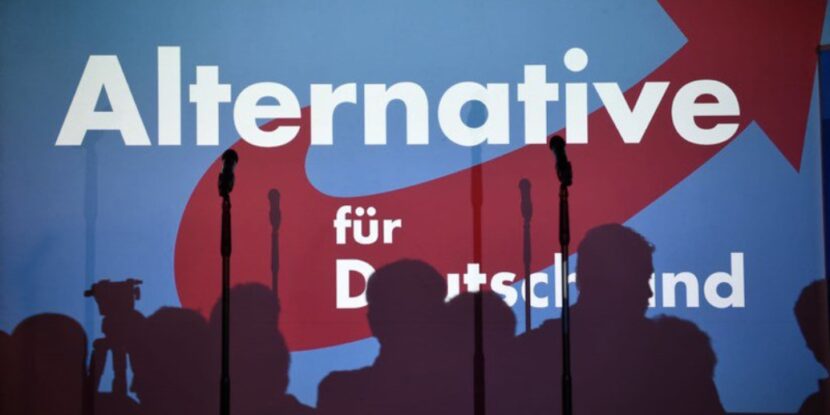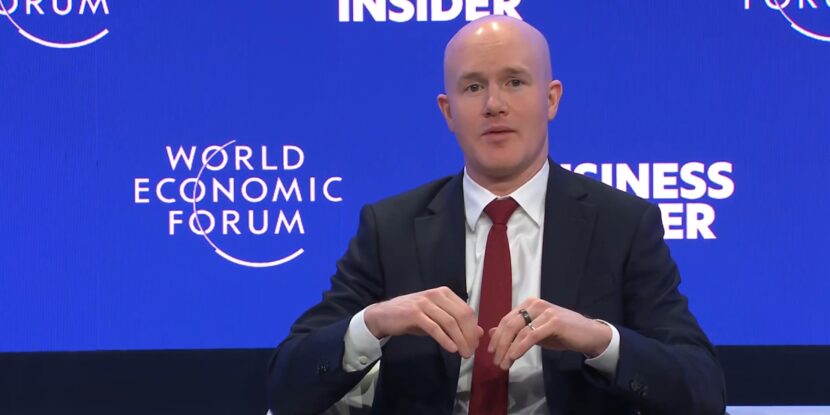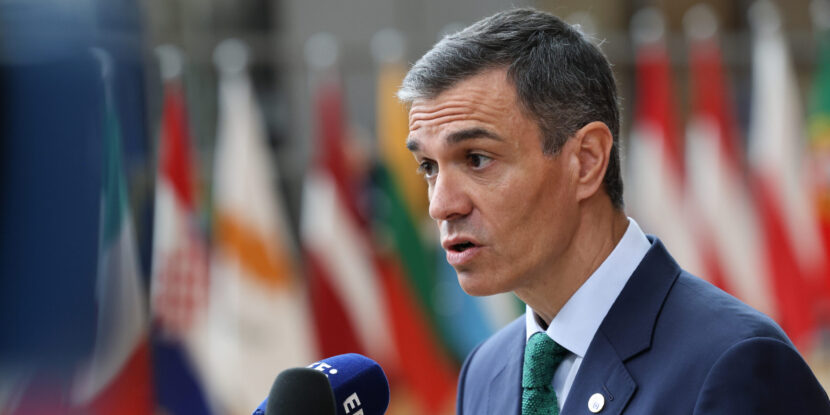The right-populist, anti-mass migration Alternative for Germany (AfD) party has won state elections in Thuringia and near-tied the establishment Christian Democratic Union (CDU), formerly led by Angela Merkel, in Saxony. The AfD has won an enormous share of the youth and working-class votes, in particular.
Led by Björn Höcke, the AfD in Thuringia is projected to have won over 33 percent of the vote on Sunday, up around 10 points on their previous showing in 2019. The CDU looks to be far behind, at around 25 percent. The Sahra Wagenknecht Alliance (BSW), a new, left-populist party that opposes mass migration, is third, at around 15 percent.
Meanwhile, Chancellor Olaf Scholz‘s left-wing Social Democratic Party (SPD) is at around 6 percent. His party’s coalition partners, the far-left Greens and neoliberal Free Democrats (FDP), have a statistically zero percent share of the vote.
In Saxony, the AfD appears to have secured a near-tie with the CDU, with both coming in around 40 percent. The SPD seems to have secured around 7 percent—its worst-ever result in Saxony. The Greens and FDP have also fared poorly, with the latter dropping to under one percent—their worst-ever result in any state election.
Germany, Thuringia regional parliament election today:
Preliminary final result (seats)
AfD-ESN: 32 (+11)
CDU-EPP: 23 (+1)
BSW-NI: 15 (new)
LINKE-LEFT: 12 (-17)
SPD-S&D: 6 (-2)
GRÜNE-G/EFA: 0 (-5)
FDP-RE: 0 (-5)+/- vs. 2019 election result
➤ https://t.co/obOCVirbpF… pic.twitter.com/JqveIHsIjf
— Europe Elects (@EuropeElects) September 1, 2024
IMPLICATIONS.
While the AfD and the notionally right-wing CDU would enjoy legislative supermajorities in a coalition, the latter has refused to work with the former under any circumstances. Despite Merkel declaring multiculturalism had “utterly failed” in 2010, she opened the borders during the 2015-16 migrant crisis, with the SPD and its partners displacing her party after four terms in office in 2021.
However, the SPD has experienced a rapid collapse in support due to migrant crime worsening under their stewardship, and the Russia sanctions war and net zero policies driving up costs.
It will be difficult for the CDU to form governments without the AfD, given the level of support the populists achieved, and the unpopularity of attempting to form a “grand coalition” with the SPD and other left-leaning parties.
Germany’s establishment right, left, and far left also face long-term challenges, with the AfD winning a large plurality of the working-class vote in Thuringia and Saxony, and performing very strongly among younger voters. There are signs Germany’s youth are increasingly unhappy with mass migration and multiculturalism, with the viral song “Foreigners Out” spreading over the summer.
France’s President Emmanuel Macron faces a similar situation. The success of Marine Le Pen‘s populist National Rally (RN) in the recent European and national elections has left his faction in the legislature unable to form a government without the help of various far-left parties.
Germany, Saxony regional parliament election today:
Preliminary final results show far-right AfD (ESN) winning 30.6% of the vote. This is the party’s best result ever at a Saxon regional parliament election.
➤ https://t.co/obOCVirbpF#ltwsn #sachsenwahl2024 pic.twitter.com/atxzC7YCMS
— Europe Elects (@EuropeElects) September 1, 2024





















